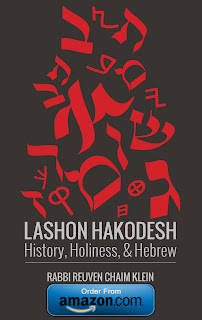After detailing the seventy souls from the family of Jacob who descended to Egypt, the Torah in the beginning of Exodus says, "A new king was established in Egypt who did not know Joseph.[1]" Rashi[2] quotes the Midrash[3] and Talmud[4], which record a dispute between two Amoraic sages, Rav and Shmuel, concerning how to understand the meaning of this verse. One explains that "new king" truly refers to a new king, while the other explains that "new king" refers to new decrees made by the same old king, for it says "established" instead of "reigned"[5]. One can explain that the source of this dispute regarding how to explicate the verse is dependant on another dispute concerning how to explicate another verse. Two verses before this passage, the Torah says, "Joseph, his brothers, and the entire generation died.[6]" Rabbi Chizkiyah ben Manoach Chizkuni (circa. 13th century) explains[7] that the "entire generation" refers to both the Egyptians and Israelites who died. Accordingly, one must say that the newly appointed Pharaoh was literally a new person, for the entire previous generation had already died out. However, Rabbi Shmuel ben Meir (circa. 12th century) explains[8] that the "entire generation" refers specifically to the seventy souls of the Jacobean family who immigrated to Egypt. In view of this explanation, one can say that that "new king" does not actual refer to a new king but rather to the new decrees of the old king.
In enumerating the seventy members of Jacob's family who descended to Egypt, the Torah lists only sixty-nine people, not seventy[9]. The Talmud says[10] that although the Torah says[11] explicitly that Jochebed was born in Egypt, she was actually conceived outside of the land of Egypt. Rashi understands[12] that Jochebed was actually born between the borders on the way to Egypt, and thus was considered one of the seventy souls who journeyed to Egypt. According to the explanation of the Tosafist Rabbi Shmuel ben Meir that all seventy people of Jacob's family who migrated to Egypt died before the enslavement of the Jews commenced, how then did Jochebed remain alive to play an active role later in causing the salvation of the Jews? Rabbi Shmuel ben Meir argued with the explanation of his grandfather, Rashi. He explained[13] that Jacob was the seventieth person in the list, not Jochebed. Therefore, it makes sense according to his own explanation that all seventy sojourners died, why Jochebed did not die yet. Rabbi Avraham Chaim Schorr asked[14] why Rabbi Shmuel ben Meir argued on Rashi and explained that Jochebed was born completely in Egypt, instead of concurring to Rashi and explaining that she was born between the walls to the country. According this understanding, Rabbi Shmuel ben Meir did not explain she was born before the Israelites entered Egypt because then she would have been one of the seventy souls and according to his own explanation, she should have died before the enslavement. Therefore, he had to explain that she was born in Egypt-proper.
[1] Exodus 1:8
[2] To Exodus 1:8
[3] Exodus Rabbah §1
[4] Sotah 11a
[5] See Maharsha and Ben Yehoyada to Sotah 11a, and Eitz Yosef to Exodus Rabbah §1 who all explain the dispute like this.
[6] Exodus 1:6
[7] Chizkuni to Exodus 1:6
[8] Rashbam to Exodus 1:6
[9] See Genesis 46:8-27
[10] Sotah 12a, Bava Basra 120a
[11] Numbers 26:59
[12] To Genesis 46:15 and to Sotah 12a, see also Numbers Rabbah §13:20
[13] Rashbam to Genesis 46:8, and Rashbam to Bava Basra 120a, 123b
[14] Toras Chaim to Bava Basra 120a


 orcid.org/0000-0001-9317-3282
orcid.org/0000-0001-9317-3282

No comments:
Post a Comment